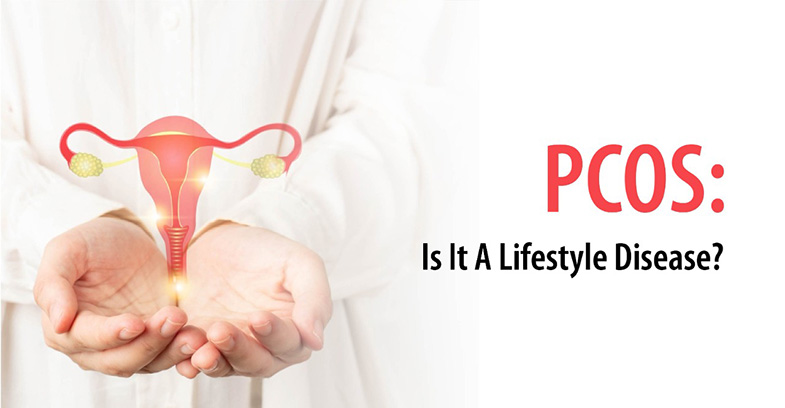
PCOS or polycystic ovarian syndrome is a common hormonal disorder that can afflict women during their reproductive age span, and is more prevalent among young adults. Undeniably a lifestyle disease, uncontrolled PCOS can lead to serious health problems like diabetes, cardiac conditions, infertility, depression, hypertension and even gynecological cancers.
Affecting the urban population more, PCOS is prevalent among one in four Indian women, with the global burden being nearly 10 million. Those suffering from PCOS develop multiple cysts in their ovaries, which by themselves are not harmful, but trigger hormonal imbalance.
The initial symptoms can include:
- Unwanted body and facial hair
- Baldness
- Acne
- Weight gain
- Irregular or absent periods
- Elevated male hormones
- Darkened or excess skin on neck or armpits
- Mood swings
- Pelvic pain
Why is PCOS a lifestyle disease?
The breakneck speed and all-consuming stress of today’s urban lifestyle, particularly those of young adults, can be a bad cocktail, precipitating a raft of non-communicable lifestyle diseases, which is the greatest challenge in front of the medical fraternity at this juncture. In this mad scramble to excel, youngsters very often forget the need to eat right, sleep well and exercise regularly. Doctors associate PCOS with such a sedentary lifestyle. Hence, lifestyle modification is the most potent tool to combat this disorder and is the first line of treatment.
What lifestyle changes can help keep PCOS away?
- Eat right: It’s important to have a balanced diet rich in high-fibre foods with lots of greens and fruits to fight insulin resistance, besides lean protein. Avoid foods with high glycemic index. Eat small, frequent meals. Avoid processed and junk food.
- Exercise: Lack of exercise can lead to weight gain and obesity, triggering metabolic imbalances like insulin resistance which can cause diabetes.
- Lose weight: Weight reduction is critical to stave off PCOS. However, don’t go for the crash diets fad. It can lead to severe nutritional deficiencies.
- Vitamins & minerals: Women with PCOS are often deficient in Vitamin D, Vitamin B12, zinc, magnesium and folate, and need to add these supplements as advised by the doctor.
- Hydrate yourself: Drinking plenty of water and fluids is extremely critical to keep your body well hydrated.
- Sleep well: Getting around eight hours of sleep in a 24-hour cycle is absolutely vital. So maintain good sleep hygiene and disconnect all gadgets at least an hour before going to bed.
- Rule out OSA: A sleep study test should be done to rule out obstructive sleep apnea or OSA, particularly for obese women.
- Quit smoking & alcohol: Smoking and alcohol consumption can add to the risk of getting PCOS and make it worse if you already have it.
While PCOS may not cause any significant discomfort, it can be a cause of infertility in women. Monitoring the condition and adjusting one’s lifestyle is necessary to avoid other complications. It is essential to seek the advice of a doctor if you experience symptoms. At Medica, our team of gynecologists are adept at treating polycystic ovarian disorders.


